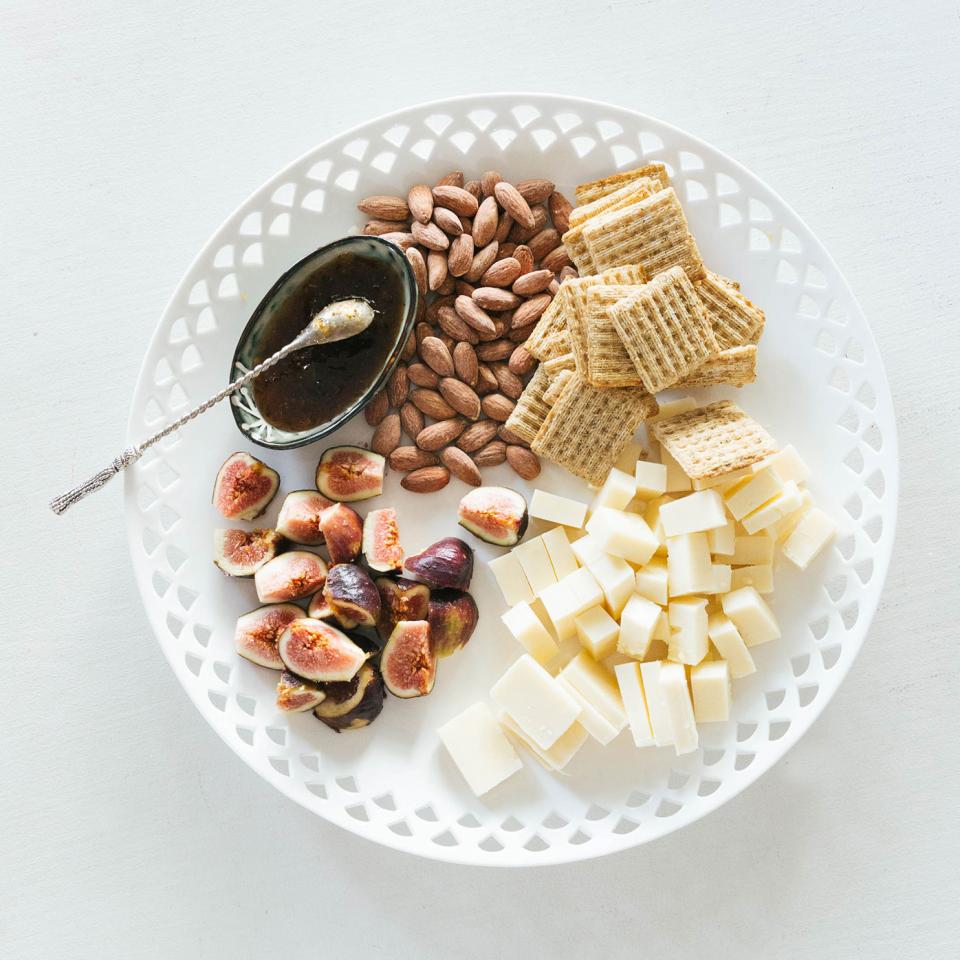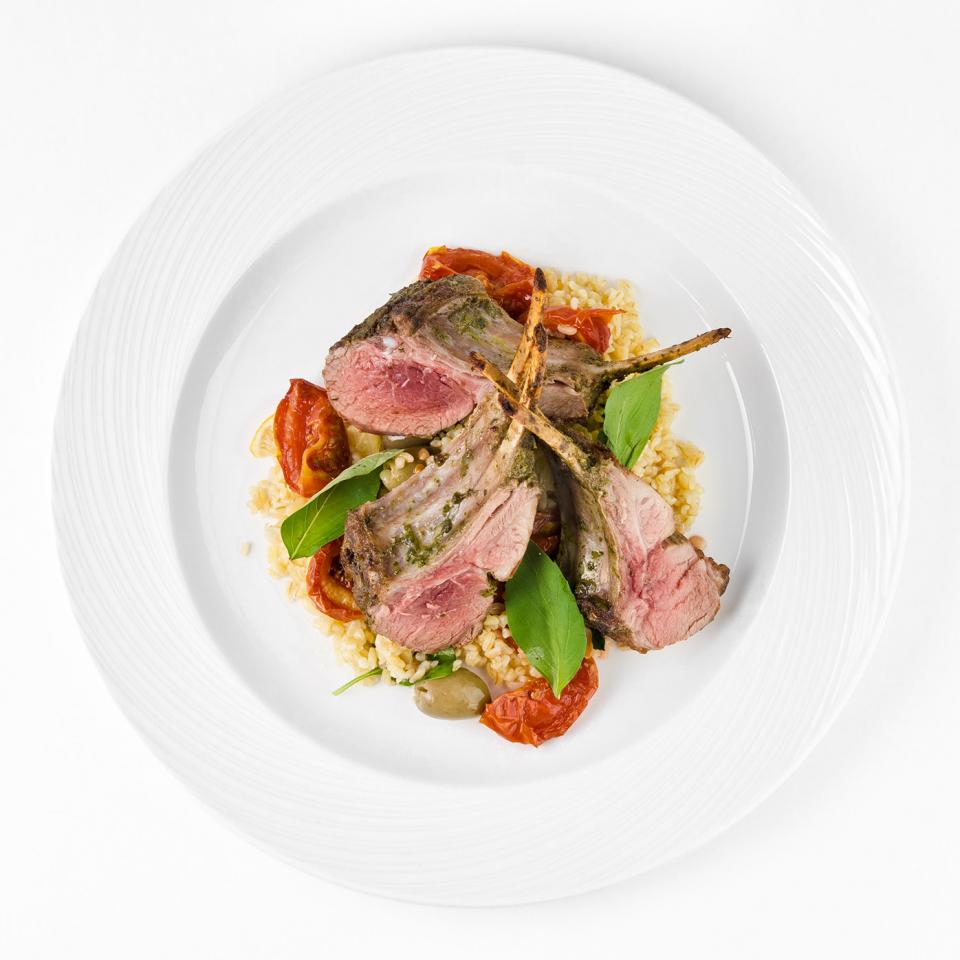Food
Meals vs grazing: what's best for you?
by Nicola Down
Big meals or small snacks – which is healthier? Nicola Down digs into the research to find out.

What did you eat yesterday? Perhaps you grabbed a slice of toast as you ran out the door and had a banana mid-morning. Lunch was soup; but at 3pm, you
According to research by market analysts Datamonitor, we’re turning our backs on the traditional three square meals a day and are now relying on five or six ‘mini’ meals. But grazing is no bad thing, right? After all, isn’t eating small amounts regularly supposed to be a waistline-friendly way to power through the day?
‘Some people might have been lead to believe that eating little and often helps to wake up a sluggish metabolism, but this isn’t the case,’ says registered dietician Priya Tew. ‘In fact, if you’re eating very frequently - every hour or so - this can cause constant changes in blood-sugar levels, which actually promote fat storage.’
That’s not all. One recent study found that grazing was more likely to increase cholesterol stores in the liver and increase harmful fat round the waist; researchers believe this is because our metabolic systems need time to rest between meals to function optimally. Nutrionist Amanda Hamilton, author of The G Plan Diet, says that leaving decent gaps between meals is also beneficial to your gut microbes: ‘When they’re not busy digesting food, friendly microbes “clean up” your gut wall, metabolising sugars and toxins there. This helps maintain balanced gut flora, which we know is good for immunity, mood, weight loss and more.’ And if you can eat these three meals within an eight hour window, so much the better, says Amanda – there is some evidence to suggest that this can boost your resting metabolic rate.
Sticking to three meals a day can also help maintain a healthy weight. According to research published in the journal Appetite when we snack between meals, we don’t fully register that we’ve eaten. The result? We forget to cut back at our next meal and end up overeating. This isn’t helped by the fact that so many of us seriously underestimate how many calories we’re consuming by as much as 50%, according to figures released by the Office for National Statistics in February. ‘If people did nothing but eliminate unnecessary snacking between meals – which means eating when you’re not hungry or even really want the food – their calorie intake would go down and they’d lose weight,’ says Priya. ‘That’s why, for many people, it’s advised to take a three meals a day approach and only snack when you are genuinely hungry.’

However, that’s not to say that adopting a grazing approach to eating is wrong for everyone. ‘Some people are grazers by nature,’ says Priya, who admits she often grazes herself. ‘Or you might have a busy lifestyle where it can be hard to find the time for proper meal breaks – individual preferences and lifestyle will dictate what works.’ Meanwhile, some people find their body seems better able to deal with a slow-and-steady trickle of foods, as opposed to three big blasts. As a result, they find that grazing seems kinder to their digestive system and reduces pesky bloating and energy slumps.
But what ultimately matters when it comes to weight management is that you do not consume more calories than you need in 24-hours, says Priya. ‘In theory, you could consume these in two, three or six meals – it comes down to personal preference, digestive comfort and eating a wide variety of food.'
‘Proper mealtimes put an end to high-cal snacking’
Sarah Willard, 47, a civil servant from Worthing is married with two children, aged 17 and 19.

Typical day:
8am: Overnight oats made with low-fat yogurt, raspberries and blueberries.
12.30pm: A big tuna salad with beans, new potatoes, a hard-boiled egg, cucumber, tomato, and beetroot.
6pm: Salmon, jacket potato and a variety of vegetables. Cheese and crackers.
Sarah says: ‘Like a lot of people, my meals have always been balanced, but I’ve been derailed by the bits in between. Nowadays, I maintain my weight by focusing on making my three main meals as healthy and sustaining as I can so that I don’t need to eat at other times. My first rule is to have a good breakfast; if f I miss it, I get peckish by mid-morning. Lunch is a homemade soup or huge salad, followed by a brisk walk. I find I don’t need anything in the afternoon to tide me over but if I do get hungry, a simple coffee will do the trick. By dinnertime, I’m definitely ready to eat – and if I’m still hungry I’ll have a selection of cheeses on crackers after my meal.’
Priya says: ‘Sarah is having a substantial breakfast, lunch, and dinner which means she rarely gets hungry between meals. For most people, a just-right meal should keep you satisfied for at least three hours which means you shouldn’t get to the point of reaching for high-calorie snacks. Cutting out unnecessary snacking can be a very effective weight loss strategy. But she shouldn’t be afraid to snack. If you are genuinely hungry, eat.'
‘Eating twice as often keeps me slim’
Lynne Barrowman, 40, a PR from Glasgow is married with three children, aged 21, 16 and 3.

Typical day:
9.30am: Skyr yogurt topped with a small handful of granola, half a banana, a handful of raspberries, chia seeds and two teaspoons of peanut butter.
11am: Two rice cakes and houmous.
1.30pm: Two Quorn sausages with wholemeal bread. Chocolate soya yogurt.
4pm: Handful of almonds.
6pm: Stir-fried tofu and vegetables served with brown rice.
7pm: Fruit salad.
9pm: Two squares of dark chocolate.
Lynne says: 'About a decade ago, I lost five-and-a-half stone through diet and exercise, but I knew the hard work didn't stop there. I needed to find a way to control my appetite so that my weight didn't spiral again, which is where grazing has come in. Now, I eat about every two hours and, as a result, I never get overly hungry or tempted to eat the wrong things. I menu plan and do food prep on a Sunday, and I keep my grazing essentials in containers in my handbag, at work, and even in the car so I'm never caught short. As I'm vegetarian, I'm careful to ensure I'm getting my nutritional needs and I'm also mindful of portion sizes - I'll measure out a teaspoon of peanut butter so I don't go OTT. It might sound like an effort, but I feel fantastic for it.'
Priya says: 'Lynne has done so well to maintain her weight loss. I'd suggest she adds some vegetables or salad to her lunch, but ultimately if she listens to her hunger and fullness signals, she'll be eating in an intuitive way that will help her stay healthy.'












